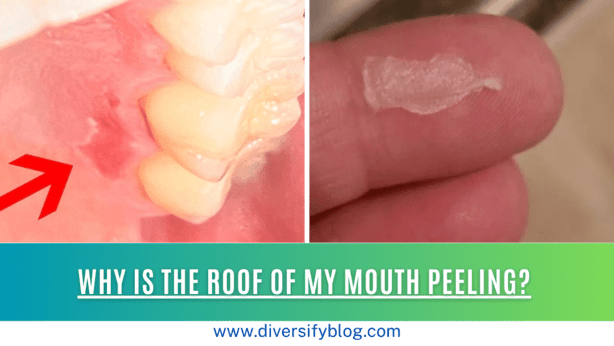Introduction:
Hey there! Have you ever woken up wondering, “Why is my mouth producing so much saliva suddenly in the morning?” It’s like your mouth turns into a fountain out of nowhere, right? Don’t worry; it’s a common thing that happens to many of us. In this blog post, we’re going to unravel this mystery and figure out why your mouth goes into overdrive with saliva production, especially when you’re just starting your day.
We’ll explore the fascinating world of saliva and why it sometimes decides to kick into high gear at the crack of dawn. From the science behind saliva to the reasons behind its sudden surge in the morning, we’ll cover it all. So, if you’ve ever found yourself wondering what’s up with all that extra saliva when you wake up, you’re in the right place!
Get ready to dive deep into the secrets of your mouth’s morning routine and uncover the answers to “Why is my mouth producing so much saliva suddenly in the morning?” Let’s embark on this journey together and uncover the answers.
Table of Contents
2. What is Saliva?
Alright, let’s talk about saliva! You might be wondering, “What’s the deal with this stuff in my mouth?” Well, let me break it down for you in simple terms.

Saliva is like your mouth’s very own superhero. It’s a watery liquid made in your mouth by little glands (think of them as tiny factories). Now, you might be asking, “Why do I even need saliva?” Good question!
First off, saliva helps keep your mouth clean and fresh. It’s like a natural rinse that washes away leftover food particles that can cause cavities and yucky breath. So, next time you enjoy a snack, thank your saliva for swooping in to save the day!
But wait, there’s more! Saliva also helps with digestion. Yep, that’s right! It contains special enzymes that kickstart the digestion process. These enzymes break down your food into smaller pieces, making it easier for your stomach to handle later on.
Oh, and let’s not forget about taste! Saliva plays a big role in helping you taste your favorite foods. It helps spread those yummy flavors all around your mouth so you can fully enjoy every bite.
Now, you might be thinking, “Okay, saliva sounds pretty cool, but why does my mouth produce so much of it suddenly in the morning?” Ah, good question! We’ll get to that in just a bit.
But for now, just remember, saliva is your mouth’s best friend. It keeps things clean, helps with digestion, and makes sure you savor every tasty treat. So, next time you swallow, give a little nod of appreciation to your trusty sidekick, saliva!
3–What is Ptyalism?
Ptyalism, also known as hypersalivation or sialorrhea, is a condition characterized by excessive saliva production beyond the normal range. It can occur in various situations, including pregnancy, certain medical conditions, or as a side effect of medication. In pregnant women, ptyalism is often referred to as “pregnancy-related excessive salivation” and is typically experienced during the first trimester.

During pregnancy, hormonal changes, particularly increased levels of estrogen, can affect saliva production. Ptyalism in pregnancy is considered a normal physiological response, albeit uncomfortable for many women. Symptoms may include constant spitting, drooling, or having difficulty swallowing due to the excess saliva.
Treating Ptyalism in Pregnancy:
Managing ptyalism during pregnancy involves various strategies aimed at reducing discomfort and improving quality of life. While there is no specific cure for ptyalism, several methods can help alleviate symptoms:
- Maintain Oral Hygiene: Regularly brushing teeth, flossing, and using mouthwash can help manage excess saliva and prevent oral health issues like tooth decay or gum disease.
- Chew Sugarless Gum or Candy: Chewing sugarless gum or sucking on sugarless candies can stimulate saliva flow and provide temporary relief from excessive salivation.
- Stay Hydrated: Drinking plenty of water throughout the day can help dilute saliva and reduce its viscosity, making it easier to swallow.
- Avoid Trigger Foods: Some foods may exacerbate ptyalism. Avoiding spicy or acidic foods, as well as foods that require excessive chewing, can help manage symptoms.
- Use Saliva-Absorbing Products: Products like saliva-absorbing pads or tissues can help manage drooling and maintain comfort throughout the day.
- Practice Stress Reduction Techniques: Stress and anxiety can exacerbate symptoms of ptyalism. Engaging in relaxation techniques such as deep breathing, meditation, or prenatal yoga can help reduce stress levels and alleviate symptoms.
- Consult with Healthcare Provider: If ptyalism symptoms persist or significantly impact daily life, it’s essential to consult with a healthcare provider. They can provide personalized recommendations and may prescribe medication in severe cases.
Overall, while ptyalism can be a challenging symptom to manage during pregnancy, adopting lifestyle modifications and seeking appropriate medical advice can help alleviate discomfort and improve overall well-being for expecting mothers.
4. Understanding Normal Saliva Production:
Now that we know saliva is like the superhero of your mouth, let’s talk about how much of it is normal. You see, your body has this amazing ability to regulate saliva production so that you always have just the right amount.
Normally, your mouth produces saliva all day long, keeping things nice and moist. But it’s not like a never-ending waterfall; it’s more like a steady drip. Your body knows when to ramp up saliva production – like when you’re eating or talking – and when to dial it down.
So, if you ever find yourself wondering, “Is it normal to have so much saliva?” the answer is usually yes! Your body knows what it’s doing, and it’s just doing its thing to keep your mouth happy and healthy.
But what about when things go haywire and you end up with way more saliva than usual? Don’t worry; we’ll get to that in the next section. So, sit tight, and let’s explore the fascinating world of saliva regulation together!
5. What Causes Excessive Saliva Production Naturally?
Now that we understand how saliva normally works, let’s delve into what can cause it to go into overdrive naturally. Your body usually does a pretty good job of regulating saliva production, but sometimes, things can get a little out of whack.
One natural cause of excessive saliva production can be related to your diet. Certain foods, like spicy dishes or sour candies, can stimulate your salivary glands and make them produce more saliva than usual. It’s like your body’s way of reacting to the flavors it encounters.
Additionally, your body’s response to stress can also play a role. When you’re feeling anxious or nervous, your body might produce more saliva as part of its natural fight-or-flight response. It’s like your mouth’s way of preparing for action!
So, if you’ve ever found yourself wondering why your mouth suddenly feels like a waterfall, even when you’re not eating anything tasty, it might just be your body’s natural response to certain foods or situations. But don’t worry; we’ll explore more causes of excessive saliva production in the next sections. Stay tuned!
6. Common Triggers for Excessive Saliva Production:
Alright, let’s talk about what can trigger your mouth to go into overdrive with saliva production. Sometimes, innocent habits or everyday situations can cause your salivary glands to kick into high gear, leaving you feeling like you’re swimming in spit. But don’t worry; it’s all perfectly normal! Let’s break it down:
1. Mouth-Watering Foods: Ever notice how certain foods make your mouth water like crazy? That’s because they can stimulate your salivary glands and make them produce more saliva than usual. It’s your body’s way of getting ready to enjoy some tasty treats!
2. Stress and Anxiety: When you’re stressed or anxious, your body goes into fight-or-flight mode, and one of the side effects can be increased saliva production. It’s like your mouth’s way of preparing for action, even if there’s no real danger around.
3. Dehydration: Believe it or not, being dehydrated can actually lead to increased saliva production. Your body tries to compensate for the lack of fluids by producing more saliva to keep your mouth moist. So, if you’re feeling extra thirsty, it might be your body’s way of telling you to drink up!
4. Medications: Some medications can also cause your mouth to produce more saliva than usual. It’s like a side effect of the medication, but nothing to worry about. Just be aware of it and talk to your doctor if it becomes bothersome.
5. Oral Health Practices: Believe it or not, your oral hygiene routine can also play a role in saliva production. Using certain mouthwashes or chewing gum with artificial sweeteners can mess with the natural balance of saliva in your mouth, leading to increased production.
So, if you’ve ever found yourself wondering why your mouth suddenly feels like it’s turned into a waterfall, these common triggers might just be the culprit! But don’t worry; we’ll explore more causes of excessive saliva production in the next sections. Hang tight!
7. Potential Concerns Related to Excessive Saliva Production:
Sometimes, excessive saliva production can be a sign of an underlying issue. While it’s usually nothing to worry about, it’s essential to be aware of potential concerns. Here are some possible reasons why your mouth might be producing too much saliva:
1. Dental Problems: Issues like infections or gum disease can amp up saliva production as your mouth’s way of fighting off bacteria. It’s like your mouth’s early warning system, flagging potential dental troubles.
2. Reflux: When stomach acid travels back up into the esophagus, it can trigger increased saliva production as your body’s attempt to neutralize the acid. It’s a protective mechanism in action.
3. Infections: Certain infections, like sinus infections or strep throat, can also cause your mouth to produce more saliva than usual as your body tries to flush out the invaders.
4. Poisoning: Exposure to toxins, such as insect bites or poisonous substances, can lead to increased saliva production as your body’s way of protecting itself.
5. Poor Oral Hygiene: Neglecting your oral hygiene can increase your risk of tooth decay and gum disease, leading to increased saliva production as your body tries to combat the infection and heal.
While these concerns are less common, it’s essential to be aware of them and seek medical attention if you experience persistent symptoms along with excessive saliva production. It’s always better to be safe than sorry!
8. Diagnosing Excessive Saliva Production:
When it comes to figuring out why your mouth is producing so much saliva, a proper diagnosis is key. Here’s what to expect during the diagnostic process:
1. Physical Examination: Your doctor or dentist will start by examining your mouth, teeth, and surrounding areas to look for any visible signs of infection or other issues.
2. Medical History: They’ll also ask about your medical history and any medications you’re taking to help identify potential triggers for excessive saliva production.
3. Diagnostic Tests: In some cases, your doctor may order diagnostic tests, such as blood tests or imaging scans, to further evaluate your condition and rule out any underlying medical concerns.
4. Specialist Referral: Depending on the findings, your doctor may refer you to a specialist, such as an otolaryngologist or gastroenterologist, for further evaluation and treatment.
By pinpointing the underlying cause of your excessive saliva production, your healthcare provider can develop an effective treatment plan to help manage your symptoms and improve your overall quality of life.
9. Treatment Options for Excessive Saliva Production:
So, you’ve found yourself wondering, “Why is my mouth producing so much saliva suddenly in the morning?” Let’s talk about what you can do about it. Here are some treatment options to help manage excessive saliva production:
1. Medications: Your doctor may prescribe medications to help reduce saliva production, especially if it’s caused by certain medical conditions or medications. These medications work by targeting the salivary glands to decrease saliva production gradually.
2. Therapy: Speech and behavioral modification therapies can be beneficial for teaching techniques to help control saliva flow, improve tongue control, and promote better swallowing habits.
3. Oral Appliances: Custom-made oral appliances, such as mouthguards or dental splints, can help reposition the jaw, tongue, or lips to reduce saliva production and improve oral hygiene.
4. BOTOX Injections: In some cases, BOTOX injections may be recommended to temporarily paralyze the salivary glands, reducing saliva production. This treatment is often used for severe cases of hypersalivation that do not respond to other therapies.
5. Surgery: In extreme cases where other treatments have failed, surgical procedures may be considered to remove or block the salivary glands responsible for excessive saliva production. However, surgery is usually reserved for severe or persistent cases and is considered a last resort.
6. Dental Care: Addressing underlying dental issues, such as tooth decay or gum disease, is essential for managing excessive saliva production. Your dentist can help treat these issues, which may help alleviate symptoms of hypersalivation.
7. Lifestyle Changes: Making simple lifestyle changes, such as avoiding spicy or acidic foods, staying hydrated, and practicing good oral hygiene, can also help manage excessive saliva production and improve overall oral health.
By working closely with your healthcare provider and exploring these treatment options, you can find relief from excessive saliva production and improve your quality of life. Remember, everyone’s situation is unique, so it’s essential to discuss your options with a medical professional to find the best treatment plan for you.
10. Home Remedies for Managing Excessive Saliva Production:
If you’re dealing with excessive saliva production, there are several home remedies you can try to help manage your symptoms. These natural remedies can be effective in reducing saliva production and promoting better oral health. Here are some home remedies to consider:
1. Stay Hydrated: Drinking plenty of water throughout the day can help regulate saliva production and keep your mouth moist. Aim to drink at least eight glasses of water daily to stay hydrated.
2. Oral Hygiene: Maintaining good oral hygiene is crucial for managing excessive saliva production. Brush your teeth at least twice a day, floss regularly, and use an antimicrobial mouthwash to help reduce bacteria in your mouth.
3. Lemon or Lime Juice: Sucking on a lemon or lime wedge can help stimulate saliva production and temporarily reduce excessive saliva. However, be mindful of citrus fruits’ acidic nature, as they can potentially erode tooth enamel with prolonged use.
4. Baking Soda Rinse: Gargling with a solution of baking soda and water can help neutralize acidity in the mouth and reduce saliva production. Mix one teaspoon of baking soda with one cup of water and use it as a mouth rinse several times a day.
5. Sugar-Free Gum: Chewing sugar-free gum can help stimulate saliva flow and promote better swallowing, which can help reduce excessive saliva production. Look for gum containing xylitol, which has been shown to have dental benefits.
6. Dietary Changes: Avoiding foods that trigger excessive saliva production, such as spicy or acidic foods, can help reduce symptoms. Stick to a bland diet of soft foods if you’re experiencing discomfort.
7. Stress Management: Practicing stress-reducing techniques, such as deep breathing, meditation, or yoga, can help alleviate anxiety-related excessive saliva production.
8. Elevate Your Head: Elevating your head while sleeping can help prevent saliva from pooling in your mouth and causing discomfort. Use extra pillows to prop yourself up or invest in a wedge pillow for better elevation.
These home remedies can be effective in managing excessive saliva production and promoting better oral health. However, if your symptoms persist or worsen, it’s essential to consult with a healthcare professional for further evaluation and treatment.
11. When to Seek Professional Help for Excessive Saliva Production:
While home remedies can be effective for managing mild cases of excessive saliva production, there are instances where professional intervention may be necessary. Here are some signs that it’s time to seek medical attention for your excessive saliva production:
1. Persistent Symptoms: If you’ve tried home remedies and lifestyle changes but are still experiencing persistent symptoms of excessive saliva production, it’s essential to consult with a healthcare professional. Persistent symptoms may indicate an underlying medical condition that requires further evaluation and treatment.
2. Difficulty Swallowing or Breathing: Excessive saliva production can sometimes lead to difficulty swallowing or breathing, especially if saliva is pooling in the throat or airways. If you’re experiencing difficulty swallowing or breathing, seek medical attention immediately, as this can be a sign of a serious medical emergency.
12. Conclusion:
As we wrap up our discussion on “Why is my mouth producing so much saliva suddenly in the morning?”, it’s essential to remember that experiencing excessive saliva production is a common phenomenon with various potential causes. By understanding the factors contributing to this condition and implementing proactive strategies, you can navigate it with confidence and promote optimal oral health.
Throughout this journey, we’ve explored the basics of saliva production, common triggers of excessive saliva production, potential concerns, treatment options, and practical tips for managing symptoms at home. Armed with this knowledge, you’re better equipped to address excessive saliva production and its impact on your daily life.
Remember, maintaining open communication with your healthcare provider or dentist is key to effectively managing excessive saliva production. Whether you’re seeking guidance on treatment options, exploring lifestyle modifications, or addressing underlying medical conditions, your healthcare team is here to support you every step of the way.
In conclusion, while excessive saliva production may present challenges, it doesn’t have to overshadow your oral health and overall well-being. By adopting a proactive approach, staying informed, and seeking professional guidance when needed, you can navigate this condition with confidence and continue to prioritize your oral health for years to come.
Thank you for joining us on this journey, and we wish you continued success in managing excessive saliva production and promoting quality oral health. Remember, your oral health matters, so don’t hesitate to reach out for support whenever you need it.
Question and Answers:
What causes excessive saliva drooling?
Excessive saliva drooling, known as hypersalivation or sialorrhea, can result from various factors. These may include medications that increase saliva production or affect muscle control, dental issues such as gum disease or poorly fitting dentures, neurological conditions like Parkinson’s disease or cerebral palsy, infections such as sinusitis or tonsillitis, hormonal changes during pregnancy, and psychological factors like stress or anxiety.
What happens if you eat too much saliva?
Eating excess saliva itself is generally harmless. Saliva primarily consists of water, with small amounts of electrolytes, enzymes, and antibacterial compounds. Swallowing saliva is a natural process crucial for digestion and oral health maintenance. However, significant excess saliva due to a medical condition or other factors may cause discomfort or inconvenience, such as drooling, which can be socially awkward. While swallowing large amounts of saliva quickly may occasionally lead to temporary discomfort, it typically doesn’t pose significant health risks.
Is excessive saliva a symptom of a health problem?
- Yes, excessive saliva production, particularly when persistent and interfering with daily activities, can be a symptom of an underlying health problem. Some conditions associated with excessive saliva production include neurological disorders like Parkinson’s disease, dental issues such as gum disease or poorly fitting dentures, certain medications, infections like respiratory infections or sinusitis, and hormonal changes during pregnancy. If someone experiences persistent excessive saliva production or drooling, consulting a healthcare professional for proper evaluation and management is advisable.



















